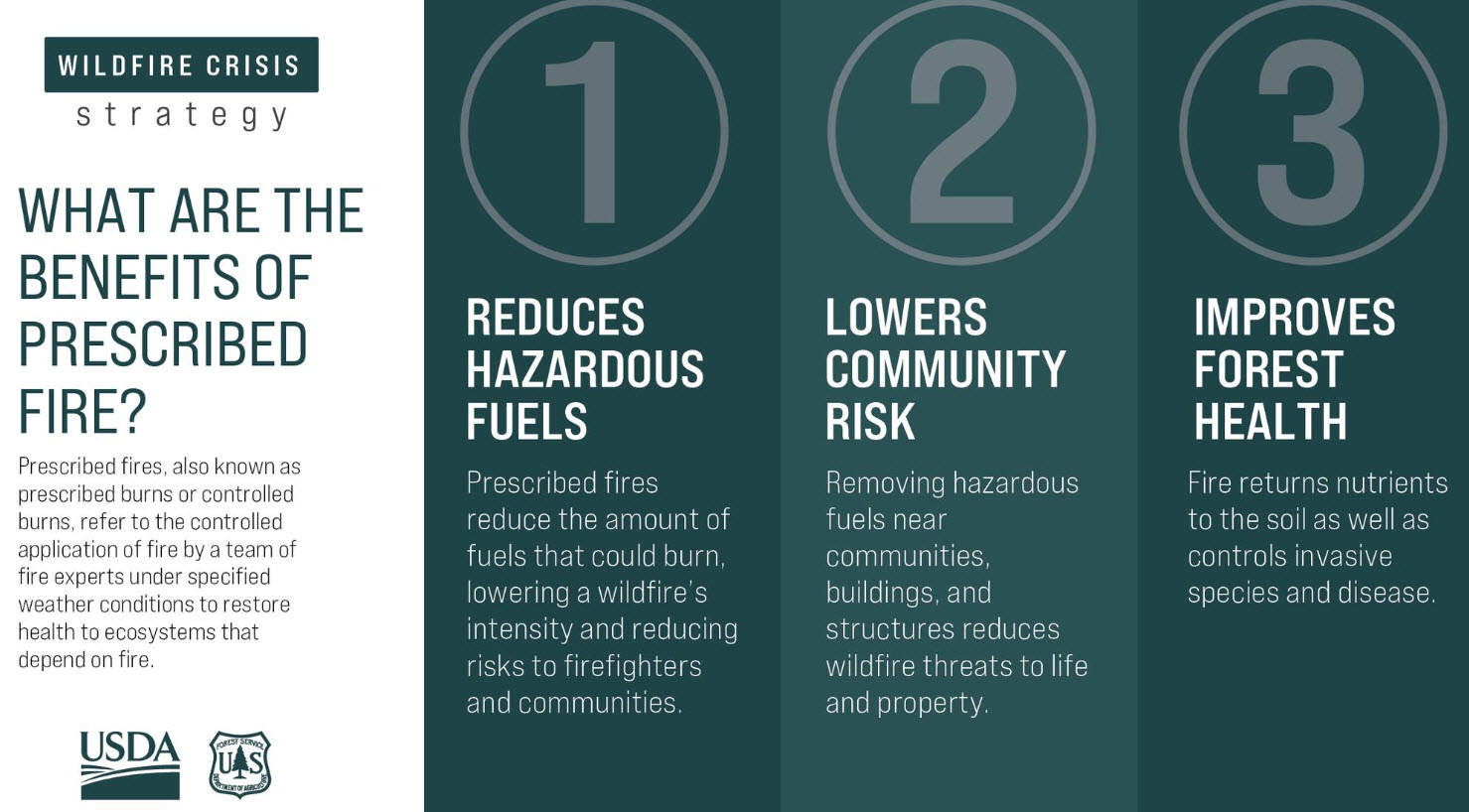SPECIAL REPORT. ASHEVILLE, N.C. — The National Forests in North Carolina continued controlled burn operations today in the Nantahala, Pisgah, and Croatan National Forests. Burn operations may continue through the end of this week as long as weather and fuel conditions remain favorable for safe, effective burns. The goals for the burns are to reduce potential wildfire fuels that have built up on the forest floor and improve forest health by supporting native, fire-adapted species. Details about each burn unit are included below:
Pisgah National Forest
Dobson Knob, Grandfather Ranger District – a 2300-acre burn unit in Burke County, near the McDowell County line. Located approximately 5.5 miles north of Nebo, NC and 2.5 miles east of North Cove, NC.
Seven Mile Ridge, Appalachian Ranger District – a 465-acre burn unit in McDowell County off of the Blue Ridge Parkway and Victor Road approximately 2 miles south of Crabtree Falls Campground, Marion, NC.

Nantahala National Forest
Stateline Burn, Nantahala Ranger District – a 1700-acre burn unitin Jackson County. The burn was coordinated with U.S. Forest Service, Francis Marion and Sumter National Forests in South Carolina and is located north of Wiggington Rd., west of highway 130 and east of Jacks Creek in SC.
Croatan National Forest
A 267-acre burn unit in Carteret County near Highway 58 off Old Church Road and Forest Road 175 in Swansboro, NC.
The date and time of any controlled burn and the actual number of acres may change based on fuel and weather conditions. Helicopters may be used to assist burn operations. Drone/UAV use is not permitted during burn operations.
We ask that anyone near the burn units pay attention to posted signs and watch carefully for wildland firefighters and personnel working in the area. We will monitor wind speed and direction to try and limit smoke impacts on nearby communities, but please be aware of any smoke in the area.
Why controlled burns/prescribed fire?
Fire is a natural part of our forests in North Carolina. Prescribed fires, also known as controlled burns, are an important tool for maintaining that natural process and reducing fuels that build up on the forest floor, while ensuring public and firefighter safety.
How does the USFS plan for a burn?
All controlled burns are thoroughly planned and analyzed by a team of specialists to ensure that wildlife, fisheries, rare plants, and historic sites are not harmed. They use information from decades of fire science research to write controlled burn plans, which are also known as a “prescription”, to improve forest health.
Who participates in a burn? What do they look for?
Wildland firefighters and fire management teams that respond to wildfires are the same people that plan and carefully set controlled burns. They go through extensive training to ensure firefighter and public safety, reduce the impacts of smoke on nearby communities, and set the burns so that they improve forest conditions. Fire managers consider wind speed/direction, relative humidity, conditions on the forest floor, and other factors before and during a burn. They plan for these fires to move slowly and at a low intensity so that they reduce wildfire fuels and allow wildlife to either escape the area or find a refuge and avoid injury. (Often, animals like turkey and deer move in quickly after a burn to take advantage of the newly opened areas and easy to find food sources.) After a burn, fire managers will monitor the area and analyze the effects of the burn.
For more information on how the U.S. Forest Service uses prescribed fire, visit https://www.fs.usda.gov/managing-land/prescribed-fire
For more information, visit www.fs.usda.gov/nfsnc or follow the National Forests in North Carolina on Facebook (www.facebook.com/nfsnc).





